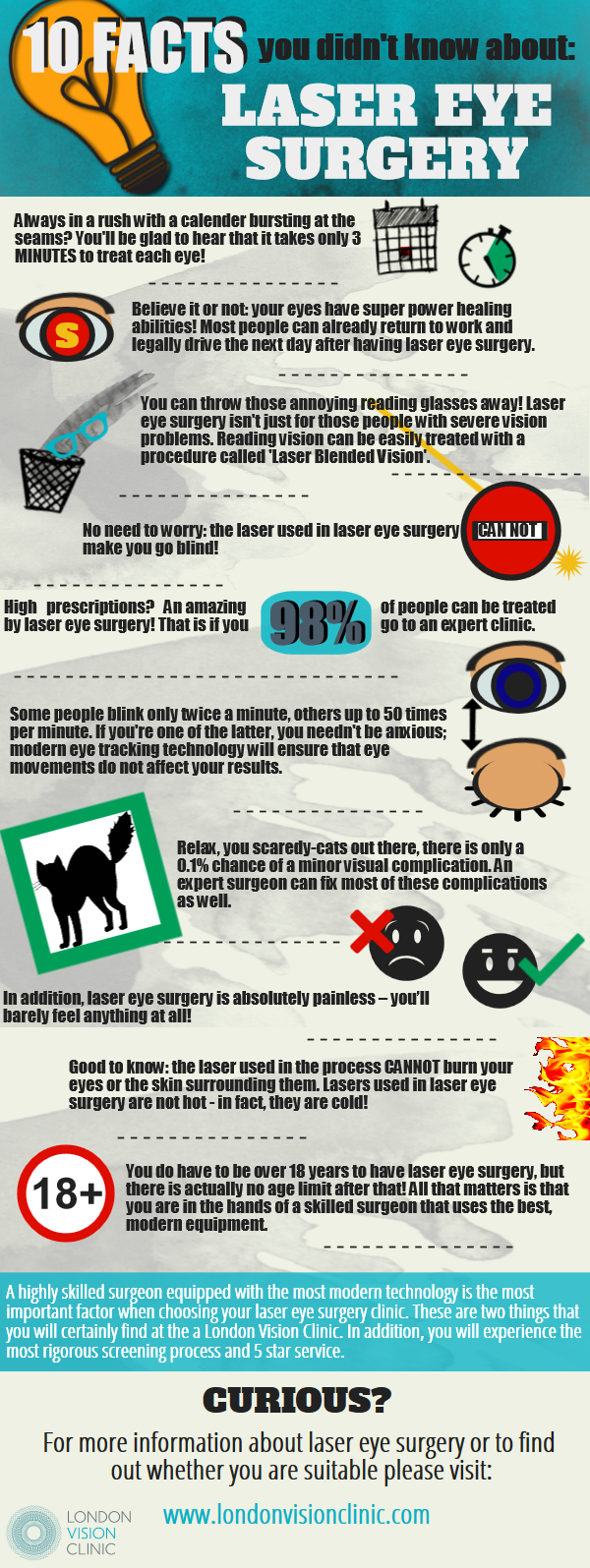Refractive Lens Exchange: A Thorough Overview To Achieving Better Vision
Refractive Lens Exchange: A Thorough Overview To Achieving Better Vision
Blog Article
Post Produced By-Russo Noble
If you're over 40 and battling with vision concerns like hyperopia or nearsightedness, Refractive Lens Exchange (RLE) might be worth considering. This treatment changes your all-natural lens with an artificial one, potentially reducing your reliance on glasses. While the benefits are appealing, it's vital to recognize the risks and eligibility requirements. What should cataract surgery when can you see understand before choosing that could change your vision for life? Allow's explore this subject even more.
Understanding Refractive Lens Exchange
Understanding Refractive Lens Exchange (RLE) can be critical for those thinking about vision improvement alternatives.
RLE is a surgical procedure that replaces your eye's natural lens with a man-made intraocular lens. It's largely targeted at remedying severe refractive mistakes, such as hyperopia, nearsightedness, or presbyopia.
During the treatment, your specialist will remove your cloudy or clear lens and replace it with a lens customized to your vision requires. This choice is usually taken into consideration for individuals over 40 that may not be suitable prospects for LASIK.
By choosing RLE, you're not simply improving your vision; you're likewise possibly lowering your dependence on glasses or contact lenses.
Understanding just how RLE jobs will certainly empower you to make informed choices about your vision health and wellness.
Advantages and Risks of RLE
Choosing RLE not just offers an opportunity to improve your vision however also comes with its very own collection of advantages and threats.
One considerable advantage is the possibility for clearer vision, lowering or removing your dependence on glasses or get in touch with lenses. You might likewise experience a broader range of vision, especially if you go with multifocal lenses.
However, there are dangers involved, such as infection, complications throughout surgery, or discontentment with the outcomes. Some clients experience aesthetic disruptions like halos or glare.
It's essential to consider these benefits and risks meticulously. Consulting with your eye care specialist can aid you make an enlightened decision that aligns with your vision goals and way of living.
Qualification Criteria for Refractive Lens Exchange
Before thinking about Refractive Lens Exchange (RLE), it's important to establish if you meet the eligibility criteria. Typically, you're a great prospect if you're over 40 years old and have a steady prescription.
You need to additionally be experiencing refractive errors like myopia, hyperopia, or presbyopia. It is very important to have healthy eyes without any substantial diseases, such as cataracts or glaucoma.
Furthermore, you need to be in good general wellness and not have any type of problems that could influence recovery, like unrestrained diabetes mellitus. If you wear call lenses, you may need to stop wearing them for some time before your analysis.
Consulting with an eye treatment expert will certainly help you comprehend your specific situation and whether RLE is right for you.
Conclusion
To conclude, refractive lens exchange can transform your vision and minimize your dependence on glasses or calls. While it uses numerous advantages, it's vital to comprehend the risks and ensure you satisfy the qualification criteria. Consulting with an eye treatment specialist will aid you make an informed choice tailored to your demands. If review after cataract surgery about RLE, put in the time to explore your alternatives and go over any kind of issues, paving the way for more clear, a lot more vivid vision.
